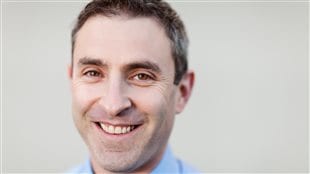One in four adult Canadians are clinically obese and while many will diet, the vast majority will put the wait back on, say recent studies. Dr. Yoni Freedhoff says that can have dramatic psychological consequences and he’s written a book to try to help.
ListenSuffering doesn’t work long term
“Keeping the weight off implies liking your life,” says Freedhoff. “Unfortunately, for the past hundred years at least, dieting has been predicated on suffering. That’s what we’ve been taught–to under eat, to over exercise– really just to suffer and sacrifice and never use food for purposes other than fuel, meaning no comfort, no celebration, at least not with food.
“That doesn’t work for a long term. That is a short term. And that would appear to be most diets.”

‘Dramatic’ psychological consequences
Falling off a diet or re-gaining the weight can be disappointing but it can lead some people to question their self-worth, says Freedhoff, adding that it can lead to depression, changes in the relationship to food and to other people.
“I think we need to think about living the healthiest lives we can honestly enjoy, rather than the diet world’s healthiest lives we can actually tolerate,” he says. “Merely tolerable lives don’t last.” Before going on a diet, people need to ask themselves if they could happily go on living with it.
‘Skill power, not will power’
Freedhoff says what is needed is not will power, but skill power. By that he means people need to acquire the skills to organize their eating to minimize hunger and cravings. Such things as ensuring snacks and meals include protein is one of the keys, he suggests. Keeping a non-judgemental food diary is useful and it’s important that no foods be banned. In fact, when a patient comes in, Friedhoff asks if there are any foods they don’t allow themselves and he promptly writes a prescription for that food.
Doctor prescribes chocolate
“For a person who loves chocolate (for example), the likelihood of living a life without it is very low. So it’s about trying to help people figure out for themselves, what’s the smallest amount of chocolate they need to like their lives, and that’s the amount I would be encouraging.”
Freedhoff says eating behaviours can be changed as long as people have the tools to do it and they can live comfortably with the change. “Skills are things that get built and get stronger, whereas willpower, well over time, it diminishes quite a lot.”








For reasons beyond our control, and for an undetermined period of time, our comment section is now closed. However, our social networks remain open to your contributions.